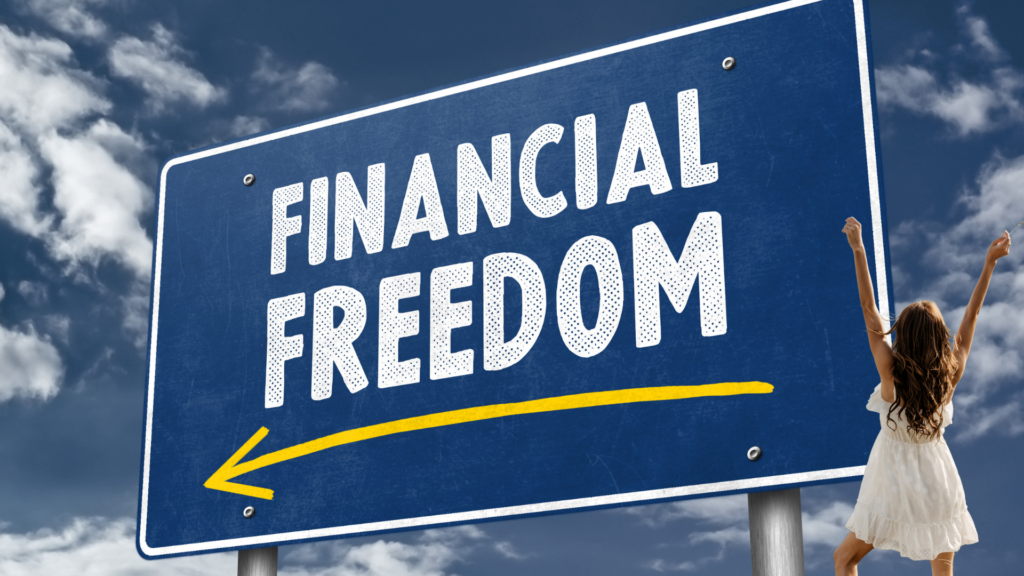Table of Contents
Introduction
It is a desire of many people to be financially free but it is not enough to make a lot of money. The truth is that the principle of infinity of wealth is based on the ability to live within one’s means. This concept which has been deemed negative is not about denying yourself the right to enjoy the things that are important to you in life, it is about being wiser with how you spend your money and ensuring that you spend wisely in a way that will help you to gain wealth in the future.
In this guide, we will explore the reasons why it is crucial to practice the habit of spending less than you earn, how it is directly related to financial independence, and strategies that will help you to switch to this effective mentality.
What Does Living Below Your Means Mean?
Thus, living below your means means that one spends less money than he or she makes. It is the act of managing your expenditure in a way that you always set aside some money to save or invest part of the income that you receive and do not spend all of it and may even end up incurring debt.
This concept is essential for anyone seeking financial freedom, as it enables you to:
- Build an emergency fund
- Pay off debt faster
- Invest more money over time
- Reduce financial stress
- Achieve long-term financial security

Why Living Below Your Means is Critical for Financial Freedom
It is a common misconception that financial freedom can be achieved by increasing one’s income. Surprisingly, many of the high-income earners are in poor financial condition since they fall for lifestyle inflation where people spend more of their income as they earn more. Thus, without the proper management of spending, even increased income cannot provide the financial stability that is needed in life.
1. Prevents Lifestyle Inflation
Lifestyle inflation happens when one’s spending rises by one’s income. For instance, if you get a raise you may be inclined to treat yourself and get a new car, move to a bigger house, or buy high-end products. Though these costs may seem reasonable, they can easily drain your funds that could have been set aside for your savings or investments.
In this way, one can also avoid lifestyle inflation by ensuring that you live below your means. While deciding on what to do with your hard-earned money instead of spending it with every pay rise you get you select to live a certain way that is either the same or only slightly different from how you have been living and let your savings increase.
2. Enables Consistent Saving and Investing
This means that one has to spend less than one earns and some in money that way he or one will always have to save or even invest. This saves a person from having to use all the money he or she makes and instead, one can set some money aside for an emergency fund and also for other investment projects like stocks, real estate, and retirement plans among others.
Here’s an example of how living below your means can impact your savings over time:
| Monthly Income | Monthly Expenses | Savings Rate | Savings After 1 Year | Savings After 5 Years |
|---|---|---|---|---|
| $4,000 | $3,000 | 25% | $12,000 | $60,000 |
| $4,000 | $3,500 | 12.5% | $6,000 | $30,000 |
| $4,000 | $2,500 | 37.5% | $18,000 | $90,000 |
From the figure above, it is clear that the more one can reduce his or her spending, the more he or she can save or invest. This rather simple concept of putting away a large part of one’s income over several years is the key to amassing wealth and towards the achievement of financial independence.
Tips for Living Below Your Means
It may sound rather mundane, but the concept of being below the ‘means’ is not as easy as it practically seems; tips to help you get disciplined, and started:
1. Create a Budget
The basis of financial success is the development of a budget and adhering to it. A budget is very useful in the sense that it shows you how your money is spent each month and which parts of the budget you can trim. First of all, you should write down your income and all the expenses that you have every month beginning with the mandatory ones such as rent, and utilities and then other expenses such as eating out, entertainment, and others.
2. Track Your Expenses
It is therefore important to ensure that you have a budget and this means that you need to take time and record your spending habits. Some of the ways that you can do this are by using a personal finance app or even a simple spreadsheet to write down all the money that you spend. This can assist in determining the areas that can be cut down on so that the goals that have been set with regard to saving can be attained.
3. Prioritize Needs Over Wants
Understanding the difference between needs and wants is crucial. Needs are the basic necessities which include paying for shelter, food, and transport. Wants are the items that are not necessary and include things like eating out, new clothes, and holidays. To live below your means means that you have to learn how to manage your finances well and ensure that you spend on the important things that you need and not on the things that you want.
4. Avoid Unnecessary Debt
Debt is one of the biggest barriers that hold people from achieving their financial freedom. Do not take debt for non-essential items or consumer debt such as credit cards or personal loans. If you decide to use credit make sure that you are clearing the balance at the end of the month this will enable you to avoid interest charges.
5. Automate Savings and Investments
In the end, you thus can importantly have to automate your direct savings debit and from investments, you are so checking that account you can your save savings automatically. account To or this your investment plan every month. This is what is commonly referred to as the “pay yourself first” approach whereby saving is the first thing that you do with your money before you can spend it on other things.
The Power of Frugality
It’s important not to confuse frugality with stinginess; frugality is about spending money carefully and being conscious of where it goes. Being frugal helps you still be able to have fun and enjoy the things that are important in life while at the same time making sure you don’t spend more than you should. Here are some ways to be frugal and still have a good time:
- Buy Quality, Not Quantity: Rather than purchasing a lot of low-quality goods that will get ruined or worn out quickly, it is wise to buy a few quality items that will last longer.
- Practice Mindful Spending: Every time you are about to buy something, stop and ask yourself if it is in harmony with your future financial plans.
- Look for Other Ways to Get What You Need for Little or No Money: Instead of splurging on meals or entertainment, look for ways to have fun without spending a lot of money such as going for a hike, preparing food at home, or attending community events.

How to Avoid Lifestyle Inflation
One of the key factors to financial independence is avoiding what is known as ‘lifestyle inflation’. Below are some tips to ensure that you do not fall prey to such expenses:
1. Set Clear Financial Goals
It is therefore important to have clear and long-term financial objectives so that you do not get off track. Whether it is to save for a home, to create an emergency fund, or to plan for retirement, the goals that you have set will help you monitor your spending and ensure that you do not buy items that you do not really need.
2. Celebrate Raises by Saving More
So, when you get a raise or bonus, do not rush to spend the money. Rather, try to boost your savings or investments. In this way, even if you keep on living the same lifestyle, you will be able to move faster towards the financial freedom that you want.
3. Surround Yourself with Like-Minded People
It is also important to note that the environment influences the spending behavior of an individual. Ensure that you are around people who have the same or even better, those who have the same financial objectives and like are you also willing to live a humble life. This makes it easier and more encouraging to stand against pressure and embrace the culture of being economical.
The Link Between Living Below Your Means and Financial Freedom
The concept of ‘living below your means’ is the key to achieving financial independence and it is a fundamental principle that cannot be overstated. This means that if you can manage to spend less than what you bring in, you will be able to save, invest, and accumulate wealth. In the long run, this approach gives you the financial freedom to pursue your desires and goals in life without having to answer to anyone but yourself.
Conclusion: The Path to Financial Freedom
The concept of living below one’s means does not have to simply be joys synonymous with life. suffering Rather, it denies oneself about being wise with the money you spend in the present and reaping the benefits of financial stability in the future. The decision to be frugal, to only spend money on the essential, and to not let the ever-rising costs of living consume one’s income can bring about the freedom to live a financially stable life.
It may take some time and hard work to get there but the freedom that comes with being debt-free, the lack of stress, and the financial independence that comes with it are all very good reasons to do so.
1. What does financial freedom truly mean, and how can I define it for myself?
A: In this context, financial freedom can be described as the ability to receive a sufficient level of income, have sufficient savings, as well as make proper investments that will allow one to support the desired standard of living without the need to work a fixed job. It is quite a subjective notion and can look different for different people; it can mean early retirement for some, being free from debt for others, or being able to follow one’s passions without barriers. To define it one has to determine what he or she wants, what is important, and what is enough.
2. How can creating multiple streams of income accelerate the journey to financial freedom?
A: Creating several sources of income helps you to generate more money and also not over-depend on one source of income. Some examples of passive income include rental properties, dividends, and online businesses among others which can be combined with active income and help in boosting financial stability. Rather than spending the earnings and or else consuming them in times of need, by reinvesting them and allowing them to compound over time, one can be able to achieve financial freedom even with the presence of unexpected financial demands.
3. How does budgeting contribute to achieving financial freedom?
A: The concept of budgeting is very important since it acts as the strong base through which one can plan for the achievement of financial independence. This is because, through a proper and well laid out budget, one is able to control his or her spending, monitor every expense that he or she makes, and ensure that the desired goals are met with regard to spending as well as saving and investing. It is the commitment to the budgeting process that sees people make incremental improvements over time.
4. What are the biggest financial mistakes to avoid on the path to financial freedom?
A: Some common mistakes include; taking up debt and accumulating high-interest debts, spending beyond your income, not having an emergency fund, and not investing at an early age. Procrastinating when it comes to contributing towards retirement or spending money on things you do not need can also be very damaging. It is advised that these pitfalls are avoided by following a certain financial plan that will help one achieve financial freedom.









Is it possible to live below your means on a low income?
Yes, living below your means is possible at any income level. It may require strict budgeting, cutting unnecessary expenses, and finding creative ways to increase income, like side gigs or freelancing.
I can totally relate, Shive. I’ve found that even small changes, like reducing energy usage or meal prepping, can make a difference.
Plus, budgeting apps can help you stay on track, so maybe give that a try as well, Bella
🙌🙌🙌🙌
I loved how this article simplified a complex topic!
The site’s overall organization makes finding great articles easy.
Very interesting and informative content! I always find this
site reliable and full of valuable knowledge.
[…] are the main ways blockchain finance helps companies become more […]
Having read this I thought it was very informative. I appreciate you taking the time and effort to put this article together. I once again find myself spending way to much time both reading and commenting. But so what, it was still worth it!
Super helpful
Do you mind if I quote a few of your articles as long as I provide credit and sources back to your website? My website is in the exact same area of interest as yours and my visitors would definitely benefit from some of the information you provide here.
Hurrah! In the end I got a weblog from where I know how to truly take helpful information regarding my study and knowledge.
I don’t even know how I ended up here, but I thought this post was great. I do not know who you are but definitely you’re going to a famous blogger if you are not already 😉 Cheers!
Hurrah! In the end I got a weblog from where I know how to truly take helpful information regarding my study and knowledge.
Hey there fantastic blog! Does running a blog similar
You made some decent points there. I seemed on the internet for the difficulty and found most people will go along with along with your website.